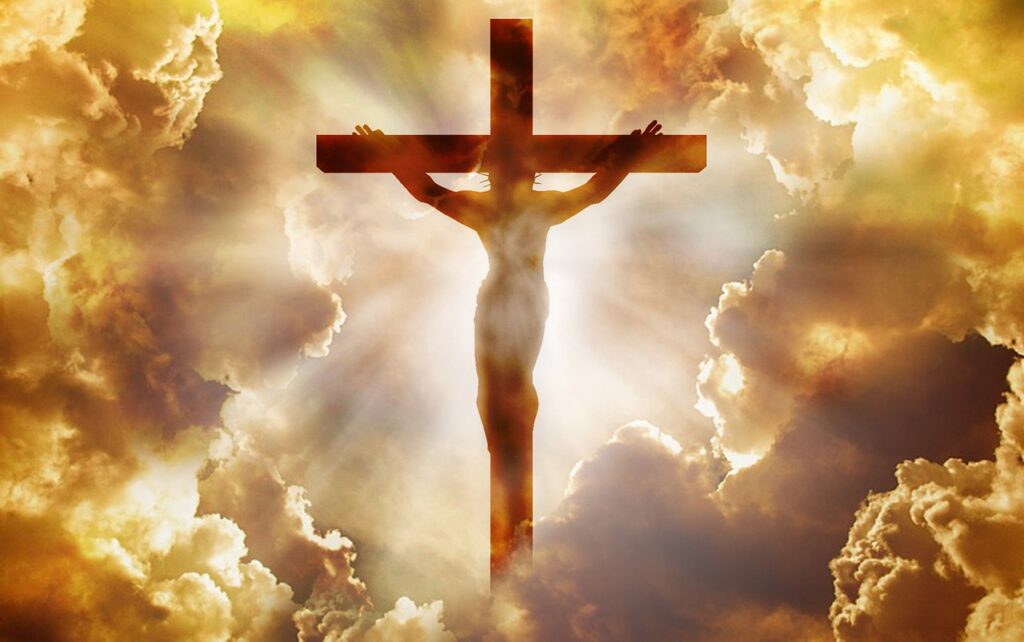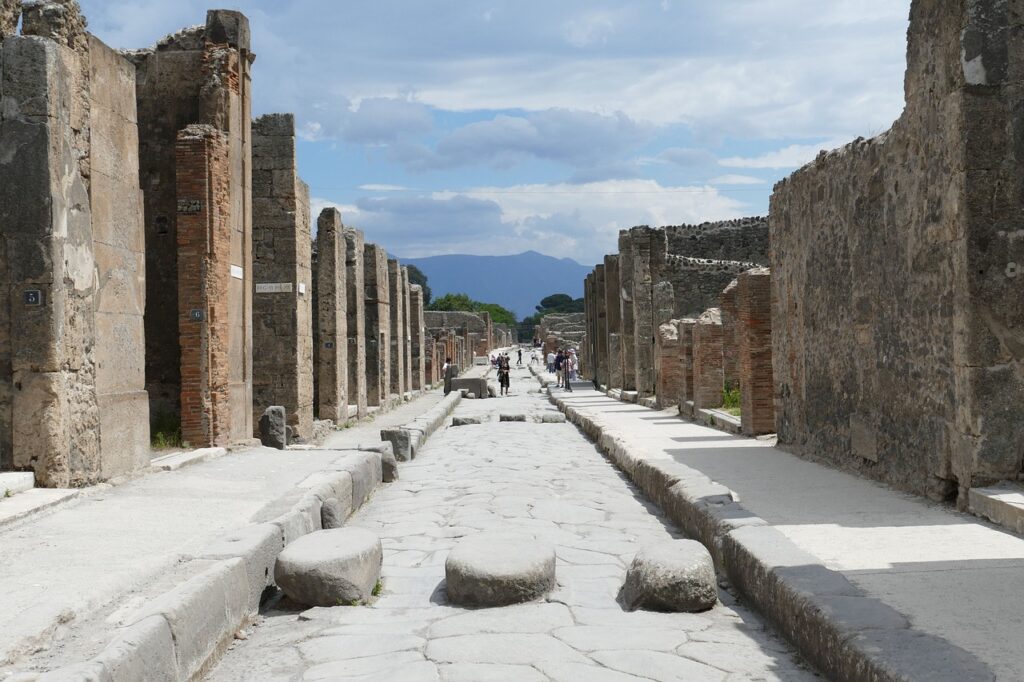Introduction
In Eph. 2:8-9, the Apostle Paul wrote that we aren’t saved by our works but we’re “saved by grace through faith” as a gift of God. Yet, Jesus talked about the cost of discipleship in Luke 14:25-33. But what is the cost? And how can a free gift come with a cost? Can we reconcile Paul’s writings with what Jesus taught? I believe that we can. Let’s begin by examining the difference between “payment” and “cost”.
Related Post
Payment vs. Cost
Jesus makes it clear here and in other passages, like Luke 9:23, that there’s a cost to following Him. The first question that usually arises when we say this is, “isn’t grace given freely?” Of course, the answer is YES.
However, we must distinguish between payment and cost. Jesus made the payment for us because we could not. There’s nothing we can do to earn our salvation. But this doesn’t mean that there’s no Cost to us. It doesn’t mean that He doesn’t require something of us.
The Lamborghini

Let’s say, for example, someone gives me a Lamborghini. Now, I can’t afford to buy a Lamborghini so there’s nothing I can give the person to pay them for it. The car is given freely.
However, there is a cost to owning a Lamborghini. I have to pay for insurance, gas, maintenance, cleaning, anxiety whenever I leave it alone in a parking lot, etc.
Like the example of the Lamborghini, Jesus freely gives the benefit of His atoning death on the cross, but in His sovereignty, He has chosen to require total commitment from those who decide to follow Him. This is the cost.
In Luke 14:25-33, who is Jesus Speaking To?
We are told right up front that Jesus is speaking to the crowd. Therefore, He’s likely giving general instruction that is to be put into practice by all. This makes sense because the crowd came out to see what He was about. He told them if they want to follow Him they must evaluate the cost of following Him. Since we must all make a decision about following God, and no decision is still a decision, we must all count the cost.
2 Aspects of the Cost
There are 2 aspects of the cost. 1) Jesus’ expectation of us and 2) our evaluation of the cost and our willingness to pay it. So, let’s look at the first aspect which is Jesus’ expectation of us.
Luke 14:26-27 “If anyone comes to me and does not hate his own father and mother, wife and children, brothers and sisters – yes, and even his own life – he cannot be my disciple. Whoever does not bear his own cross and come after me cannot be my disciple.”
These are strong words. Is Jesus really calling us to hate? Let’s work through context to figure it out. First, what do we know of Jesus? 1) He is God, 2) His words are perfect and true, 3) He taught us to love our neighbors as ourselves (Matt. 22:36-40) and to love our enemies (Matt. 5:44). Therefore, we know immediately that there must be more to this. It’s not likely that He is suddenly commanding us to hate, particularly our close family.
What is this passage about?
Second, what is this passage about? Here He talks about who can be His disciple and counting the cost of following Him. This, added to what we know about Jesus’ teachings, clues us in that He may be talking comparatively between our family and Himself because he’s trying to teach us the importance of full commitment to Him. But to be sure, let’s continue.
Other passages
Third, are there any other passages that give us additional information about this subject? Fortunately for us there are four gospels. We can often find a similar account, or even the same account, written in another gospel from a different person’s perspective. If we look at Matt. 10:37-38, Jesus said,
Matthew 10:37-38 “The one who loves a father or mother more than me is not worthy of me, the one who loves a son or daughter more than me is not worthy of me. And whoever doesn’t take up his cross and follow me is not worthy of me.”
This is strong evidence that Jesus is speaking comparatively. We can confirm this by looking at the words used. The Greek word used in the original manuscripts for hate is “miséõ” which means “to detest on a comparative basis” or “to love less”.
When we work through these steps, we see that Jesus is calling us to make Him number 1 in our lives above all else. If momma and papa don’t go, I must still go. If brother and sister don’t go, I must still go. Even if they disown me for my faith, I must still go. We must commit all to Jesus as #1 in our lives ahead of everyone & everything else.
Carry your Cross
In Luke 14:27, Jesus tells us that part of the cost is to carry our own cross and follow Him. Remember at that time in history the cross was not a nice clean symbol like it is today. It was one of the most torturous and humiliating execution devices ever conceived. One that the prisoner was forced to carry in front of everyone to his own execution.
Jesus is telling us that we must crucify our own wills and to openly take up His will. This is why this is paired with the concept of denying self in Luke 9:23. It is actively submitting to the King’s rule and taking up those things the further His kingdom, no matter who objects.
There will be hardships and sacrifice, maybe even persecution. But Jesus promises to always be with us. He will stand by us when everyone else abandons us. He has given us His Holy Spirit to empower us to make the changes that we can’t make on our own.
Evaluate the Cost
The second aspect of the cost of discipleship is to evaluate both the cost and our willingness to pay it. Here Jesus uses the example of building a tower or a king going into battle against another king. His purpose is to use examples that we inherently understand. We wouldn’t start either of these endeavors unless we knew we would be able to successfully finish them. This is what Jesus calls us to when we seek to follow Him.
Many people’s “non-belief” isn’t informational, it’s volitional. It’s not a problem of the head, it’s a problem of the heart. In other words, It’s not because they don’t know, but because they aren’t willing to accept Christ as Lord. We must fully submit to Jesus and the furthering of His kingdom. Why would we expect any different when God’s grace for us cost Him everything?
Related Post
Conclusion
The cost of following Jesus is…EVERYTHING. He requires full commitment. This is what He means when He says, “Every one of you who does not renounce all his possessions cannot be my disciple.” He is not telling us we have to literally throw everything away. He is saying that nothing can come before Him. If we find something in our lives that is more important to us than Jesus, then we are better off throwing it away than letting it come between us and Him.
“The Cost of Discipleship”
CHEAP GRACE
Cheap grace means the justification of sin without the justification of the sinner…Cheap grace is the deadly enemy of our Church. We are fighting today for costly grace. Cheap grace means grace sold on the market like cheapjacks’ wares. The sacraments, the forgiveness of sin, and the consolations of religion are thrown away at cut prices.
Grace is represented as the Church’s inexhaustible treasury, from which she showers blessings with generous hands, without asking questions or fixing limits. Grace without price; grace without cost! The essence of grace, we suppose, is that the account has been paid in advance; and, because it has been paid, everything can be had for nothing….
Cheap grace is the grace we bestow on ourselves. Cheap grace is the preaching of forgiveness without requiring repentance, baptism without church discipline, Communion without confession…. Cheap grace is grace without discipleship, grace without the cross, grace without Jesus Christ, living and incarnate.COSTLY GRACE
Costly grace is the treasure hidden in the field; for the sake of it a man will gladly go and sell all that he has. It is the pearl of great price to buy which the merchant will sell all his goods. It is the kingly rule of Christ, for whose sake a man will pluck out the eye which causes him to stumble, it is the call of Jesus Christ at which the disciple leaves his nets and follows him.
Costly grace is the gospel which must be sought again and again and again, the gift which must be asked for, the door at which a man must knock. Such grace is costly because it calls us to follow, and it is grace because it calls us to follow Jesus Christ. It is costly because it costs a man his life, and it is grace because it gives a man the only true life. It is costly because it condemns sin, and grace because it justifies the sinner.Above all, it is costly because it cost God the life of his Son: “ye were bought at a price,” and what has cost God much cannot be cheap for us. Above all, it is grace because God did not reckon his Son too dear a price to pay for our life but delivered him up for us. Costly grace is the Incarnation of God.
DIETRICH BONHOEFFER
Blessings



1 thought on “The Cost of Discipleship”
Pingback: Slavery in the Bible: Philemon - Questions in Theology